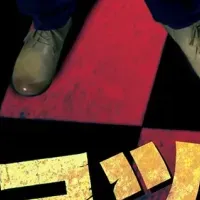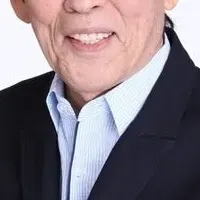
JAY-Z Files Motion to Dismiss Anonymous Lawsuit or Reveal Plaintiff's Identity
JAY-Z Request to Dismiss Anonymous Lawsuit
In a recent development, Shawn 'JAY-Z' Carter has taken a significant legal step by filing a motion aimed at either dismissing an anonymous lawsuit brought forth by attorney Tony Buzbee or demanding the disclosure of the plaintiff's identity. The move comes in light of ongoing legal disputes that have attracted considerable media attention.
Background of the Case
The lawsuit, which remains largely mysterious due to the plaintiff's anonymity, has raised several concerns for Mr. Carter, who is represented by attorney Alex Spiro. In the motion filed on December 10, 2024, Mr. Spiro argues that the identity of the plaintiff must be revealed to ensure that JAY-Z can defend himself adequately against claims that he describes as baseless. According to the legal documents, the plaintiff has not provided any sworn statement or factual basis to support the allegations or the need for anonymity.
Accusations Against Buzbee
Mr. Carter's legal team paints a critical picture of Tony Buzbee, labeling him as a lawyer who exploits high-profile individuals for financial gain through settlements. They argue that Buzbee has routinely targeted well-known personalities with false claims and is now leveraging this lawsuit as a form of personal vendetta against one of the few individuals who resisted his settlement demands.
The court documents characterize the current allegations as part of a larger pattern of Buzbee's attempts to extort damages from famous figures, referencing a supposed ongoing saga of exploitation and manipulation surrounding his legal actions.
Recent Developments
On December 6, 2024, it was reported that Buzbee sought a temporary restraining order against Mr. Carter's legal representatives, which was subsequently denied by the court. The refusal of the restraining order underscores the judge's skepticism toward Buzbee's claims, adding another layer of complexity to the legal battle.
Carter's motion emphasizes that he should not be compelled to make public defenses against an accuser who remains hidden. This sentiment echoes the broader concerns about anonymity in legal cases, particularly when allegations can have significant personal and professional ramifications.
Carter's Response to Allegations
In a public statement following the filing, JAY-Z vehemently denied the allegations made by Buzbee, stating that they are so heinous they should be treated as criminal matters outright rather than civil claims. He emphasized the seriousness of the accusations, particularly concerning minors, asserting that any form of misconduct against minors should lead to incarceration for the offender.
Carter's statement concluded with a call for genuine justice for alleged victims, contrasting his situation with those who might use anonymity to evade scrutiny.
Implications for Public Figures
This lawsuit and the surrounding legal maneuvers bring to the forefront crucial discussions about the treatment of anonymous allegations in the legal system, especially concerning public figures. While anonymity can provide a layer of protection for individuals who might fear retaliation, it also raises questions about accountability and the ability for defendants to mount an effective defense. As the situation unfolds, it will likely prompt further scrutiny and dialogue regarding legal processes beneficial to both plaintiffs seeking justice and defendants protecting their reputations.
Conclusion
The ongoing legal battle between JAY-Z and Tony Buzbee highlights the complexities inherent in cases involving anonymous claims against well-known individuals. As the case progresses, the outcomes could set precedents for how similar cases are handled in the future, with implications for both accusers and defendants in the legal landscape.
Topics Entertainment & Media)










【About Using Articles】
You can freely use the title and article content by linking to the page where the article is posted.
※ Images cannot be used.
【About Links】
Links are free to use.